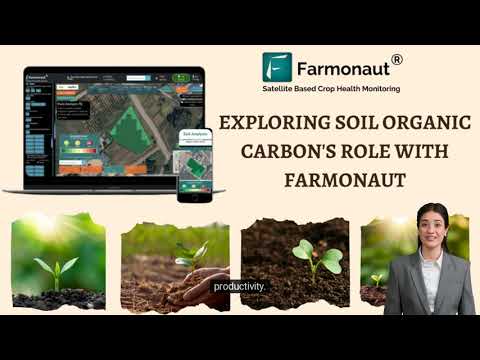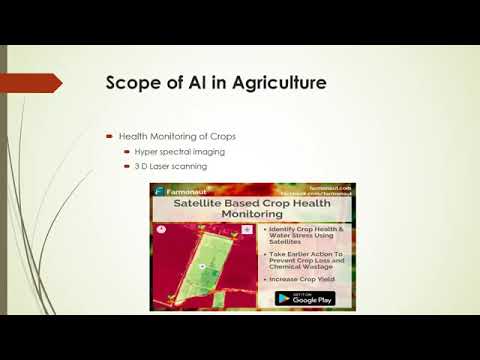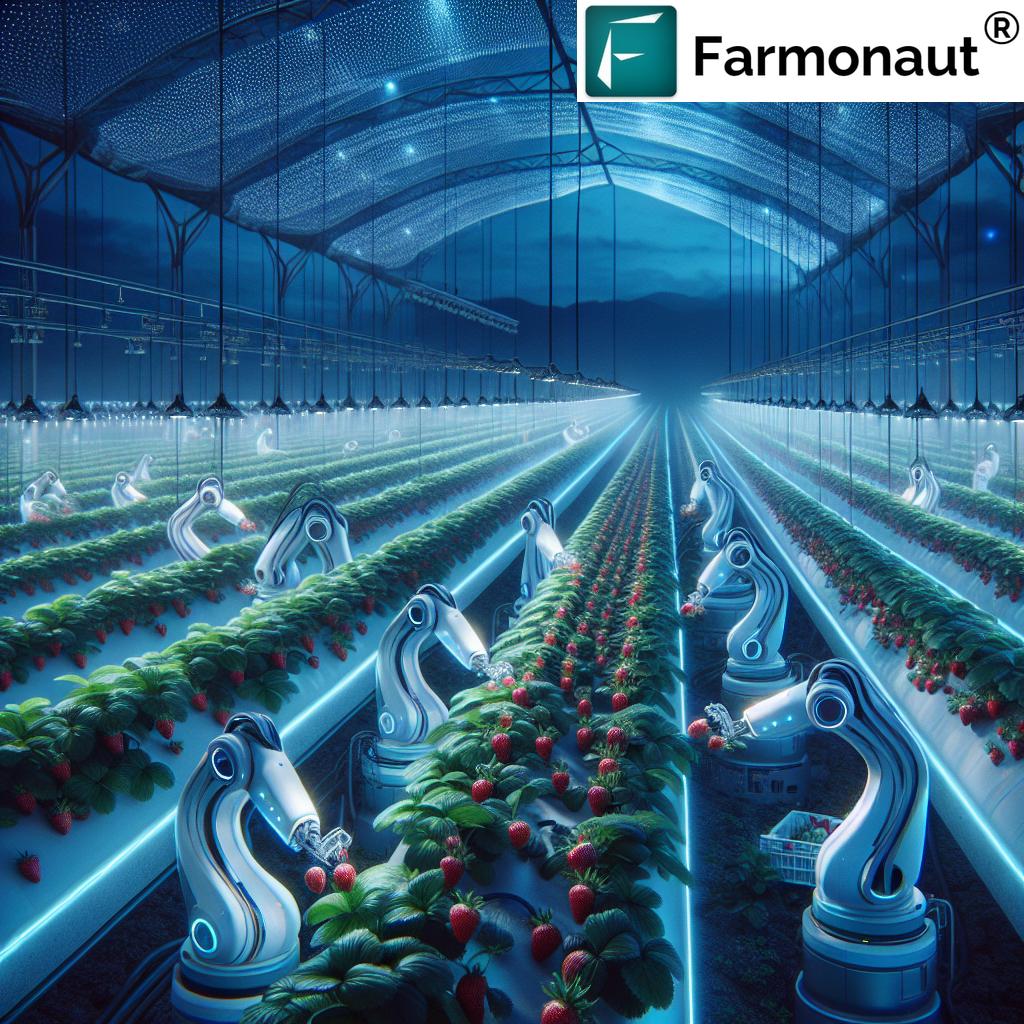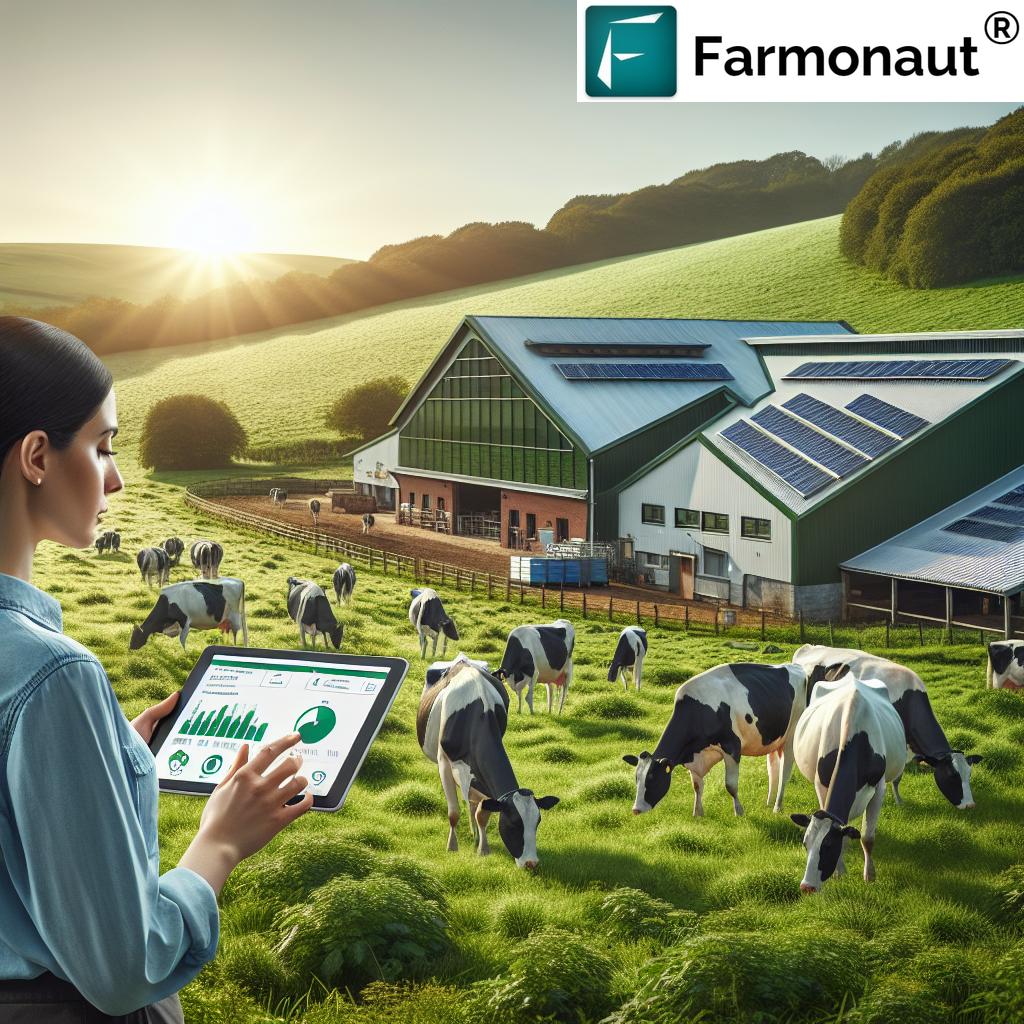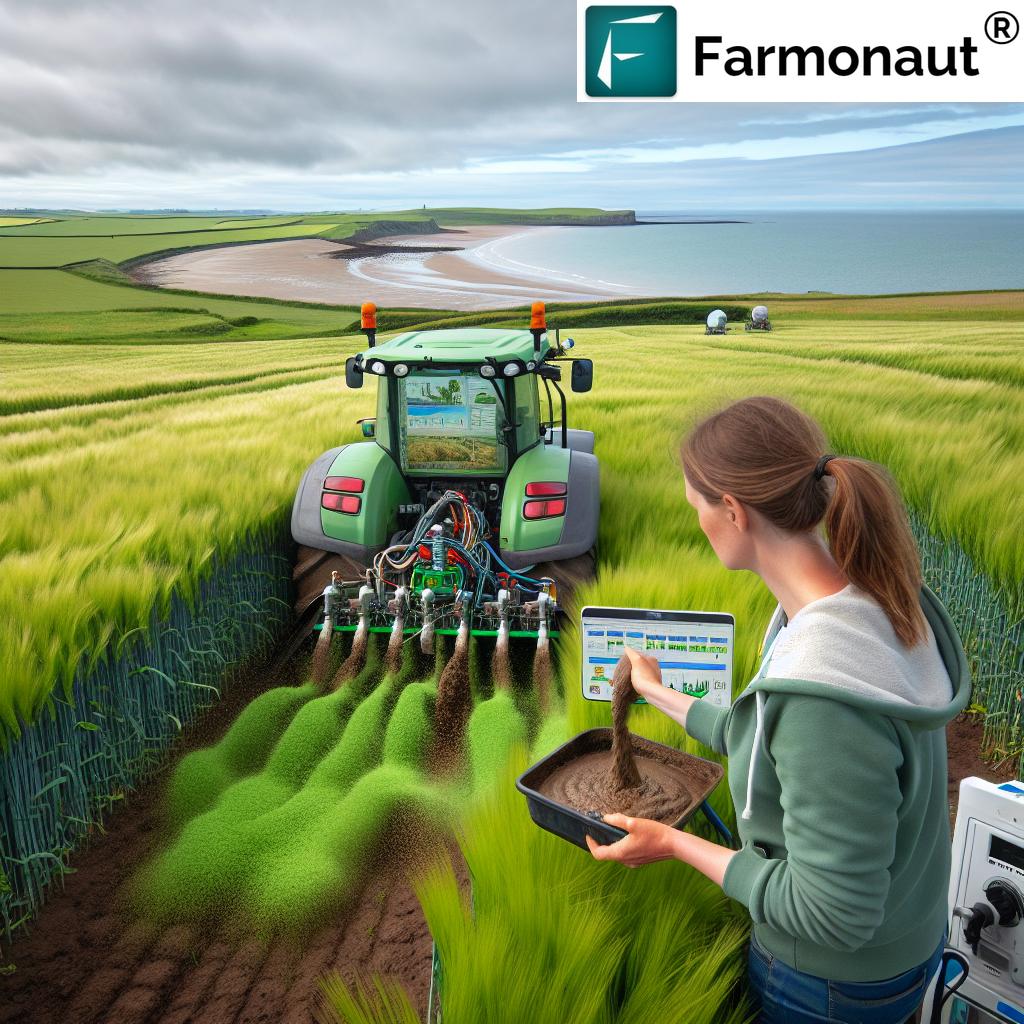Welsh Farming at Crossroads: Balancing Sustainability and Rural Economy in Agricultural Policy
“Welsh Government’s Sustainable Farming Scheme could potentially lead to a loss of 5,500 farming jobs in Wales.”
“Projections suggest an 11% decline in livestock numbers in Wales due to new agricultural policies.”
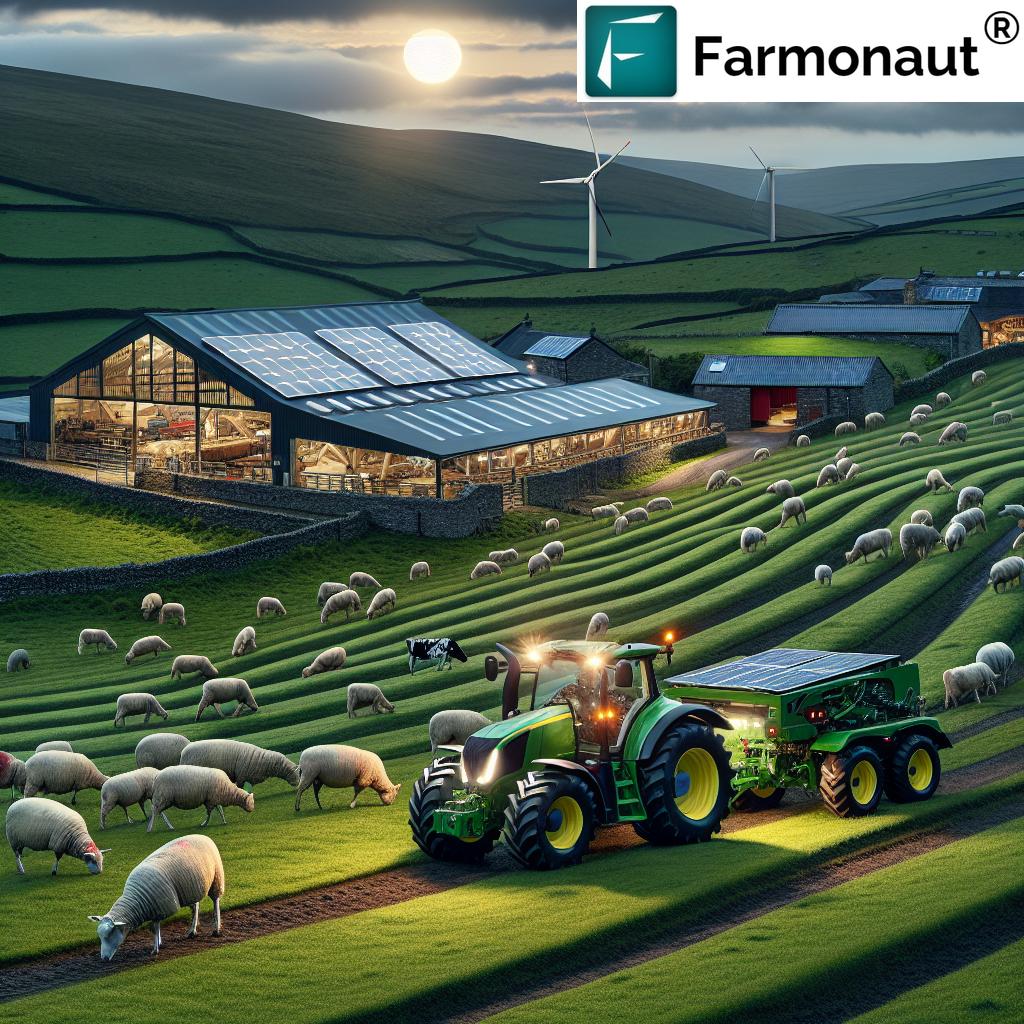
In the rolling hills of Wales, a significant transformation is underway. The Welsh Government’s Sustainable Farming Scheme (SFS) has sparked a crucial debate about the future of agriculture in this picturesque corner of the United Kingdom. As we delve into this complex issue, we’ll explore how Welsh farmers are navigating the delicate balance between environmental sustainability and economic viability.
The SFS represents a pivotal moment for Welsh agriculture, promising to reshape the landscape both literally and figuratively. Recent projections have sent ripples of concern through farming communities, suggesting a potential loss of 5,500 farming jobs and an 11% decline in livestock numbers. These numbers aren’t just statistics; they represent livelihoods, generations of farming traditions, and the very fabric of rural Welsh society.
The Sustainable Farming Scheme: A Double-Edged Sword?
The Sustainable Farming Scheme is rooted in noble intentions. It aims to address pressing environmental concerns, promote biodiversity, and ensure that Welsh agriculture remains competitive in a rapidly changing global market. However, the scheme’s implementation has raised questions about its impact on the rural economy and the agricultural workforce.
- Environmental Goals: The SFS prioritizes sustainable farming practices, encouraging farmers to adopt methods that reduce carbon emissions, improve soil health, and enhance biodiversity.
- Economic Implications: While environmentally beneficial, these changes may require significant investments from farmers and could potentially reduce short-term profitability.
- Workforce Challenges: The projected loss of jobs is a major concern, particularly in rural areas where farming is often the primary source of employment.
As we navigate these changes, it’s crucial to consider innovative solutions that can help farmers adapt. This is where precision agriculture technologies, such as those offered by Farmonaut, can play a pivotal role.
The Role of Precision Agriculture in Sustainable Farming
Precision agriculture represents a promising avenue for Welsh farmers looking to meet sustainability goals while maintaining economic viability. By leveraging advanced technologies, farmers can optimize their operations, reduce waste, and potentially offset some of the economic challenges posed by the SFS.
- Satellite-Based Crop Monitoring: Tools like Farmonaut’s satellite imagery technology allow farmers to monitor crop health in real-time, enabling more precise resource management.
- AI-Driven Advisory Systems: Advanced AI systems can provide personalized recommendations for crop management, helping farmers make informed decisions that balance environmental and economic considerations.
- Resource Optimization: Precision agriculture technologies can help farmers reduce input costs by optimizing the use of water, fertilizers, and pesticides.
By adopting these technologies, Welsh farmers can potentially mitigate some of the economic impacts of the SFS while still meeting its environmental objectives.
Explore Farmonaut’s API for advanced agricultural data
Farm Diversification: A Key Strategy for Adaptation
As the agricultural landscape evolves, farm diversification emerges as a crucial strategy for Welsh farmers. Diversification can help offset potential losses in traditional farming sectors and create new opportunities for rural employment.
- Agritourism: Wales’ beautiful countryside offers excellent opportunities for farm stays, rural experiences, and educational tours.
- Value-Added Products: Processing raw farm products into artisanal goods can increase profit margins and create new market opportunities.
- Renewable Energy: Installing wind turbines or solar panels can provide additional income streams while contributing to sustainability goals.
Successful diversification requires careful planning and often, technological support. Farmonaut’s tools can assist farmers in assessing land suitability for various enterprises and optimizing resource allocation across diverse farm activities.
Access Farmonaut’s API Developer Docs for integration insights
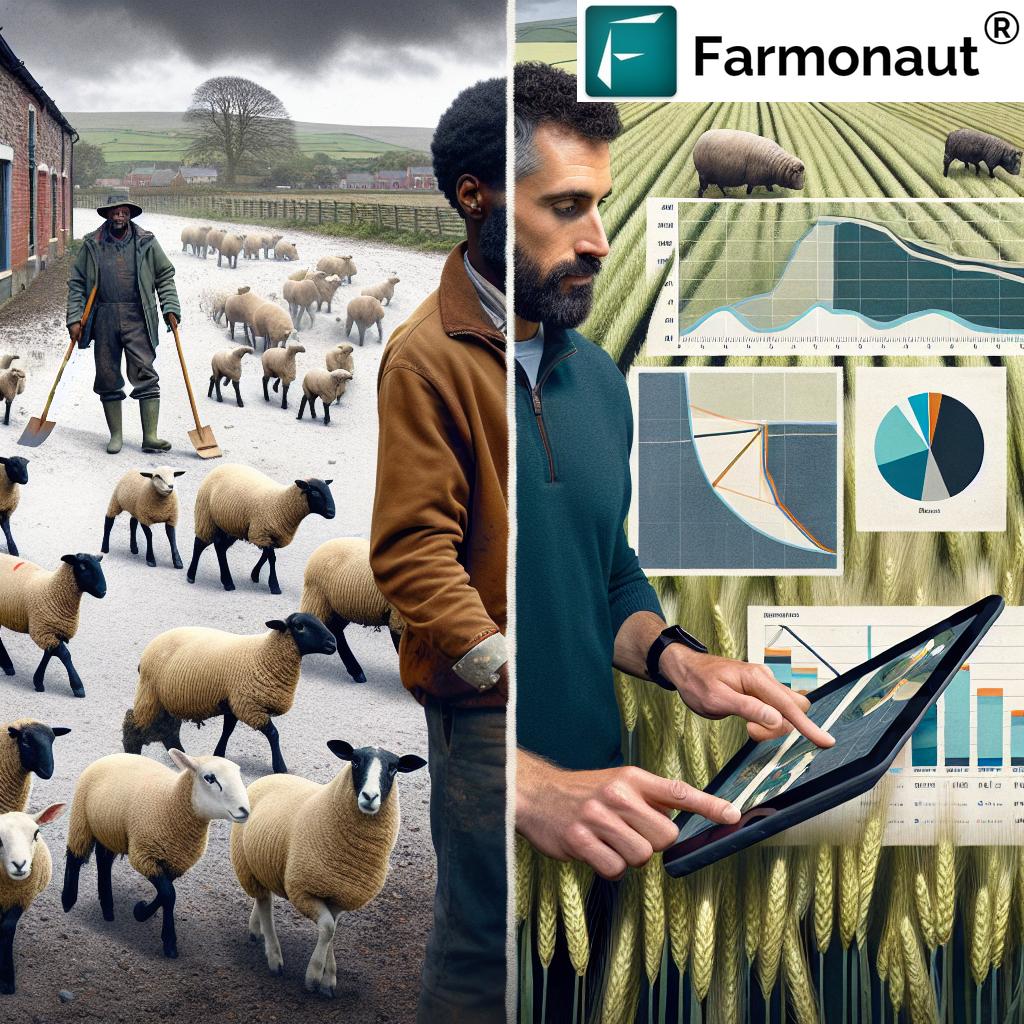
The Impact on Livestock Farming
The projected 11% decline in livestock numbers is a significant concern for Welsh farmers, particularly in regions where sheep and cattle farming have been the backbone of the agricultural economy for generations.
- Challenges: Reduced livestock numbers could lead to lower income for farmers and potentially impact related industries such as wool production and meat processing.
- Opportunities: This shift could encourage a move towards higher-value, lower-volume livestock production, focusing on quality over quantity.
- Technological Solutions: Advanced livestock management technologies can help farmers maintain profitability with smaller herds through improved health monitoring and breeding programs.
Farmonaut’s satellite-based solutions can aid livestock farmers in pasture management, ensuring optimal grazing patterns and forage quality, which is crucial for maintaining healthy livestock with potentially reduced numbers.
The Changing Face of the Agricultural Workforce
The potential loss of 5,500 farming jobs is a stark reminder of the human element in this transition. However, this shift also presents an opportunity to redefine agricultural employment in Wales.
- Skill Development: The move towards more technologically advanced farming methods will require a workforce with new skills in areas such as data analysis, drone operation, and precision agriculture techniques.
- New Job Roles: While traditional farming jobs may decrease, new roles in agri-tech, sustainability consulting, and farm tourism could emerge.
- Education and Training: Collaboration between the agricultural sector, educational institutions, and technology providers like Farmonaut can help prepare the workforce for these new opportunities.
By embracing these changes, Wales has the potential to become a leader in sustainable, technology-driven agriculture, creating new and exciting career paths in the process.
Balancing Act: Environmental Goals and Economic Viability
The core challenge of the Sustainable Farming Scheme lies in striking the right balance between environmental sustainability and economic viability. This balance is crucial not just for farmers, but for the entire rural economy of Wales.
- Carbon Footprint Reduction: The SFS aims to significantly reduce the carbon footprint of Welsh agriculture. Technologies like Farmonaut’s carbon footprinting tools can help farmers track and reduce their emissions effectively.
- Biodiversity Enhancement: Encouraging practices that promote biodiversity can have long-term benefits for farm productivity and resilience.
- Economic Incentives: The scheme needs to provide adequate financial incentives for farmers to adopt sustainable practices without compromising their livelihoods.
Success will depend on a collaborative approach, with farmers, policymakers, and technology providers working together to find innovative solutions.
The Role of Technology in Sustainable Welsh Agriculture
As Welsh agriculture stands at this critical juncture, technology emerges as a key enabler of sustainable farming practices. Farmonaut’s suite of tools exemplifies how technology can support farmers in this transition:
- Satellite-Based Crop Health Monitoring: Enables precise management of crop health, reducing the need for chemical inputs and improving yields.
- AI Advisory Systems: Provide personalized recommendations based on real-time data, helping farmers make informed decisions that balance environmental and economic factors.
- Blockchain-Based Traceability: Enhances transparency in the supply chain, potentially opening up new markets for sustainably produced Welsh agricultural products.
- Resource Management Tools: Help optimize the use of water, fertilizers, and other inputs, reducing costs and environmental impact.
By leveraging these technologies, Welsh farmers can potentially achieve the dual goals of environmental sustainability and economic viability.
The Future of Welsh Farming: Challenges and Opportunities
As we look to the future of Welsh agriculture under the Sustainable Farming Scheme, it’s clear that both challenges and opportunities lie ahead:
- Challenges:
- Adapting to new farming practices while maintaining profitability
- Managing the transition of the agricultural workforce
- Ensuring the survival of traditional Welsh farming communities and cultures
- Opportunities:
- Becoming a global leader in sustainable agriculture
- Developing new, high-value markets for Welsh agricultural products
- Creating a more resilient and diverse rural economy
The success of this transition will depend on the ability of all stakeholders to work together, embracing innovation while respecting the rich agricultural heritage of Wales.
Impact of Sustainable Farming Scheme on Welsh Agriculture
| Metric | Current Situation (Estimated) | Projected Impact (Estimated) | Percentage Change |
|---|---|---|---|
| Number of farming jobs | 55,000 | 49,500 | -10% |
| Livestock numbers | 10,000,000 | 8,900,000 | -11% |
| Farm diversification rate | 40% | 60% | +50% |
| Adoption of precision agriculture | 20% | 50% | +150% |
| Environmental sustainability score (out of 100) | 60 | 80 | +33% |
Conclusion: A New Chapter for Welsh Agriculture
As we’ve explored throughout this analysis, the Welsh agricultural sector stands at a pivotal crossroads. The Sustainable Farming Scheme, while presenting significant challenges, also offers a unique opportunity to reshape Welsh farming for a more sustainable and prosperous future.
The projected loss of jobs and reduction in livestock numbers are serious concerns that must be addressed. However, by embracing technological innovations, diversifying farm operations, and focusing on high-value, sustainable production, Welsh farmers can potentially overcome these challenges and emerge stronger.
Tools and technologies provided by companies like Farmonaut will play a crucial role in this transition. By offering affordable access to precision agriculture techniques, these solutions can help Welsh farmers optimize their operations, reduce environmental impact, and maintain economic viability.
The future of Welsh agriculture will be shaped by the collective efforts of farmers, policymakers, technology providers, and rural communities. By working together and embracing innovation, Wales has the potential to become a global leader in sustainable agriculture, preserving its rich farming heritage while building a resilient and environmentally responsible agricultural sector for future generations.
FAQs
- Q: What is the Sustainable Farming Scheme (SFS)?
A: The SFS is a Welsh Government initiative aimed at promoting environmentally sustainable farming practices while ensuring economic viability for farmers. - Q: How might the SFS affect farming jobs in Wales?
A: Projections suggest a potential loss of 5,500 farming jobs due to changes in agricultural practices and policies. - Q: What impact could the SFS have on livestock numbers?
A: Current estimates indicate a possible 11% decline in livestock numbers across Wales. - Q: How can precision agriculture help Welsh farmers?
A: Precision agriculture technologies, such as those offered by Farmonaut, can help farmers optimize resource use, improve crop health monitoring, and make data-driven decisions to balance sustainability and profitability. - Q: What are some farm diversification strategies Welsh farmers could consider?
A: Strategies include agritourism, value-added product development, renewable energy production, and adopting new agricultural technologies.



